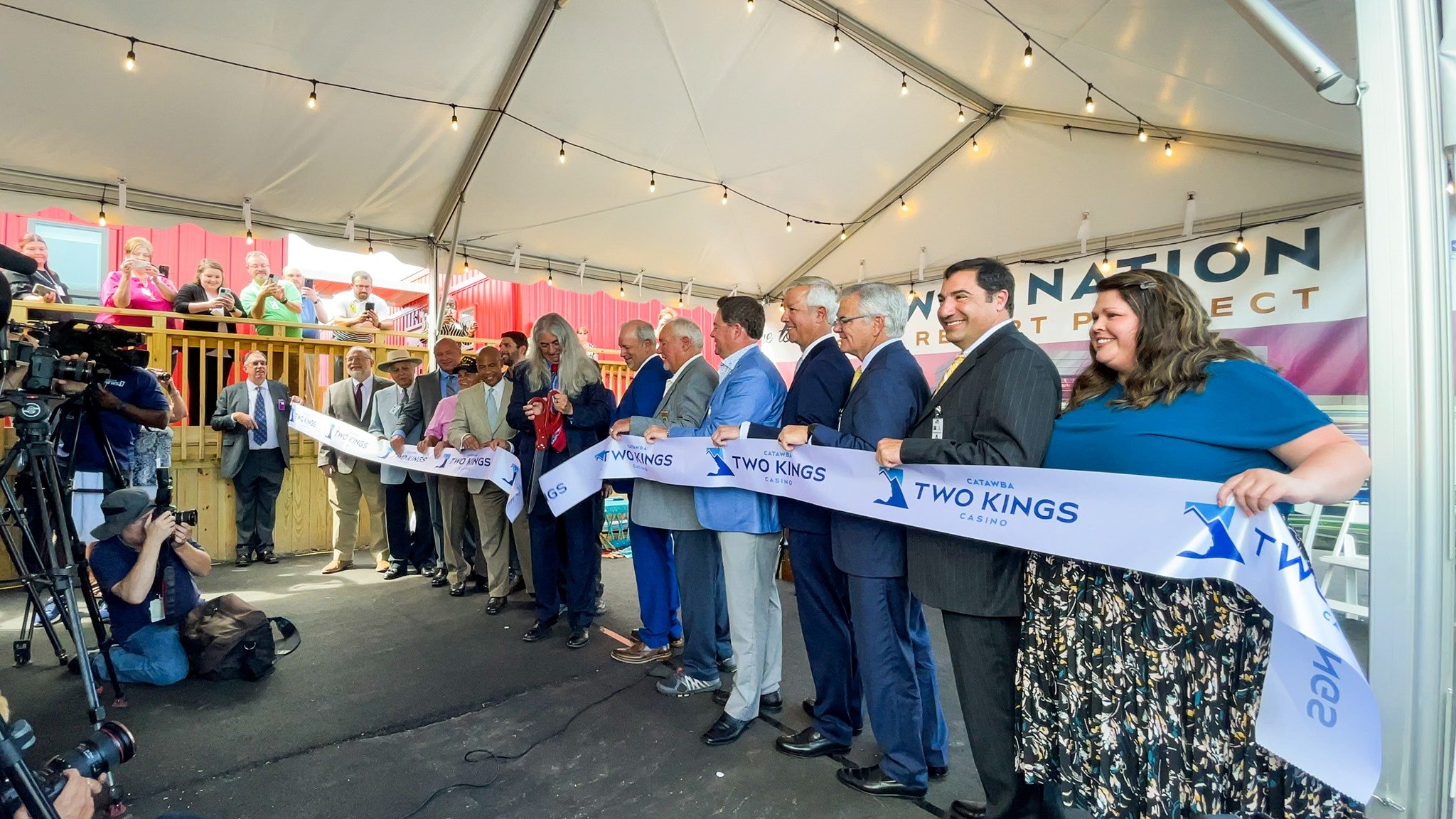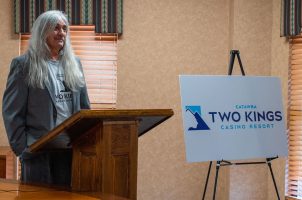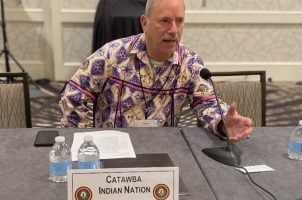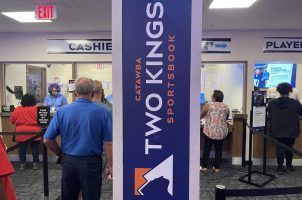Catawba Leaders Respond to Two Kings Media Reports, Call Review ‘Standard’
Posted on: August 4, 2022, 11:19h.
Last updated on: August 5, 2022, 04:41h.
The Catawba Nation Executive Committee issued a statement late Thursday responding to Sunday’s Wall Street Journal article about its Two Kings Casino. The announcement said that the South Carolina-based tribe is “committed to full compliance” with federal authorities and its own gaming laws.

The Journal article focused on numerous individuals connected to politicians. It told how they were tied to a company leasing gaming equipment to the tribe’s Two Kings Casino, which is located in Kings Mountain, NC. The article also noted that the construction on the $273 million permanent casino was delayed due partly to an “open investigation” by the National Indian Gaming Commission (NIGC).
Catawba officials criticized some media coverage stemming from the Journal’s report. They claimed some reports “leapt to the false conclusion” public officials or their relatives were under an NIGC investigation.
Rather, the NIGC is conducting its standard investigation as it reviews the tribe’s gaming agreements and gaming operations,” the statement said.
The statement said that investigation is focused solely on whether the Catawba Nation is the “sole proprietary interest” in Two Kings Casino, which is required under the Indian Gaming Regulatory Act (IGRA). Matters regarding the individuals named in the Journal report fall out of the NIGC’s purview.
Temporary Casino Open for More Than a Year
More than a year ago, the Catawba Nation opened a temporary gaming facility on the 17-acre plot in North Carolina, roughly 30 minutes west of Charlotte. It initially opened with 500 gaming machines, but it has since expanded to now hold 1,000. In June, plans were announced for a retail sportsbook to open at the casino.
The permanent casino, which is expected to generate 2,600 full-time jobs and thousands more for construction, is supposed to take about a year to build, according to the tribe’s previous announcements. That venue will hold up to 1,800 gaming machines.
“The Catawba Nation continues to work closely with the NIGC on its standard review of our casino project,” the tribe’s Executive Committee stated. “NIGC is reviewing all agreements, and our tribe, just like any other tribe in the country, is required to follow any amendments or requirements presented to us by NIGC.”
Two Kings ‘Thoroughly Reviewed’
The Catawba Nation was forced to go to North Carolina to build its casino after South Carolina officials refused to allow Class III gaming.
However, the Eastern Band of Cherokee Indians, which operates two casinos in western North Carolina, objected to the Catawba’s plans, challenging them in federal court. Late last year, Congress passed a defense spending bill that included a provision recognizing the 17 acres of land taken into trust by the federal government. When President Biden signed that bill into law, it ended the EBCI’s efforts to stop the Catawba casino in court.
US Rep. Jim Clyburn sponsored the legislation recognizing the Catawba land that was included in the defense bill. According to the Journal, Clyburn’s brother, John Clyburn, holds a share of the equipment company. The lawmaker told the Journal he was not aware of his brother’s interest in the casino.
Catawba leaders on Thursday defended the process of how their tribe acquired the land for the casino.
“The Two Kings project was thoroughly reviewed by the Department of Interior and affirmed by a federal court,” the statement said. “The related legislation, which applied strict federal Indian gaming laws to the project, went through a fully transparent hearing process with Congress.”
Related News Articles
Catawba Nation Seeking to Reduce Separation Fee From Casino Financier
Most Popular
Mirage Las Vegas Demolition to Start Next Week, Atrium a Goner
Where All the Mirage Relics Will Go
Most Commented
-
Bally’s Facing Five Months of Daily Demolition for Chicago Casino
— June 18, 2024 — 12 Comments
















Last Comment ( 1 )
I would like to know if we've got 17 acres in trust how did Wallace/sky boat become the owner of the parking lot and the surrounding land of the casino and why do we have him and why do we also have Delaware North this to me is just the people that are up there making the money not us and the guitarbag nation and our chief is not telling us much at all about the article isn't even made a statement to us really in person and I think that's that's not good it's a disgrace of what they've done to us as travel citizens and they gave us a little bit of money on EBT card and on another card so what kind of what kind of representation is that we don't have any say in a vote or anything there should have been a vote on a lot of things that come around we should have meetings we should know we should have knowledge and we don't we being held back on and they ask for raises they want bonuses they won't raises and it's not fair it's all crooked and I hope everybody gets investigated and everybody pays the price if you do the crime you do the time so that's my opinion